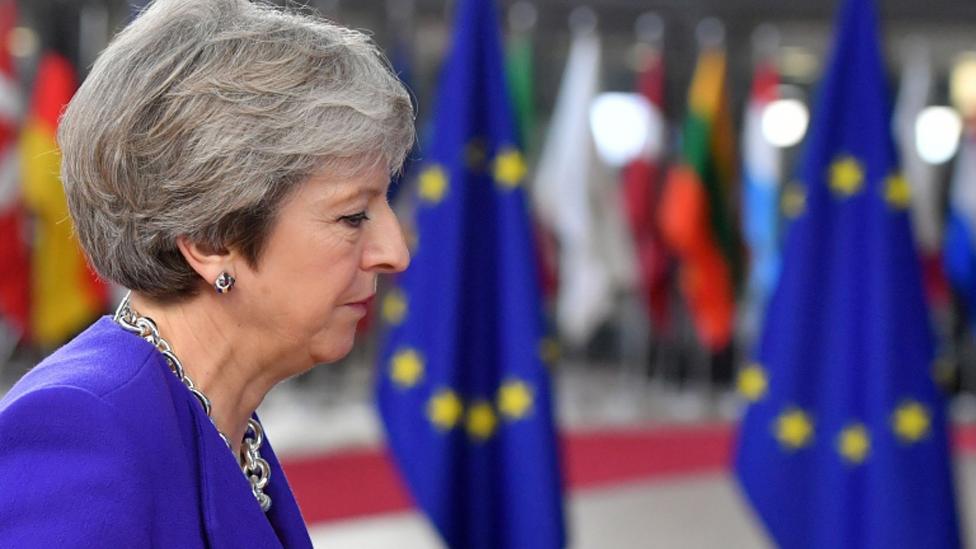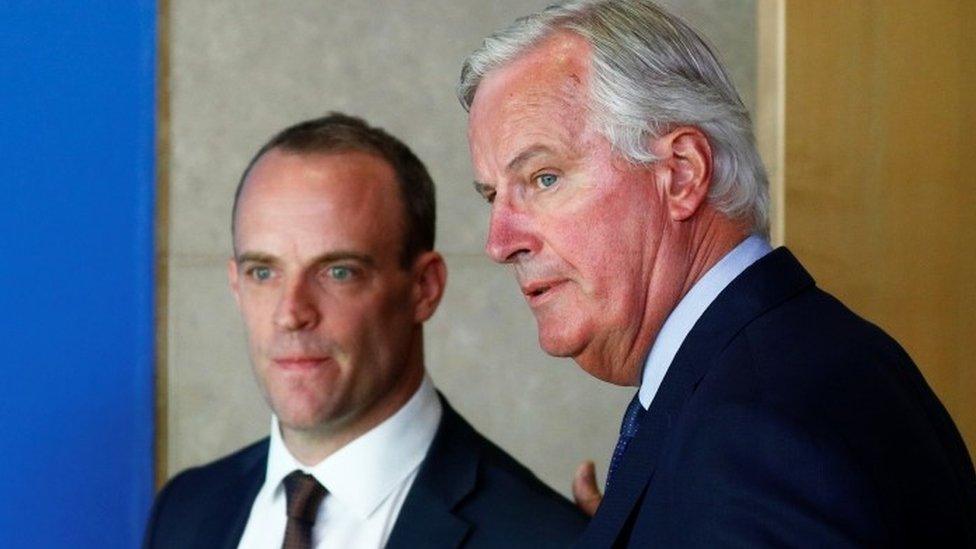May's Kafka-esque balancing act
- Published

This summit was, in some ways, quite predictable.
Not a crisis moment like Salzburg. Not a success where Theresa May could walk away with something that felt like a significant achievement.
As we know, both sides, in principle, want a deal. So last night and through this afternoon the EU and the UK agreed to keep the show on the road.
But as we move towards what the legal deadlines imply are the closing moments of this whole process, some of its moments are becoming pretty strange.
The prime minister had a hint of warmth from some parts of the EU empire for the idea of drawing out the implementation period, to give more time to work out the long term fixes.
But even so, the politics put such a straitjacket on proceedings that she can't even quite manage to be completely clear about that.
So we heard today about a proposal that's not a proposal but an "idea that's emerged". An extension to an extension that's not a request for a longer transition period but a desire perhaps to have the option.
It might sound like Kafka. But it's the words of a government struggling to keep a set of almost impossible promises.
The sound of a prime minister desperately trying to keep to the contradictory pledges that she has made in order to survive.
The circumstances for Theresa May in Brussels have not got worse in the last 24 hours. But they are hardly better. And when she gets home, a nightmare awaits.
There's upset about the parliamentary games ministers are proposing.
And irritation and disbelief at the proposal of an extension.
One former loyal Remainer Brexit minister, Lord Bridges, told me the idea of a longer transition is dead on arrival.
Each new compromise brings a confrontation with her party.
When Theresa May's promises are broken, ministers know there's a risk that it will break her government, and her leadership too.
- Published14 October 2018

- Published16 October 2019

- Published30 December 2020


